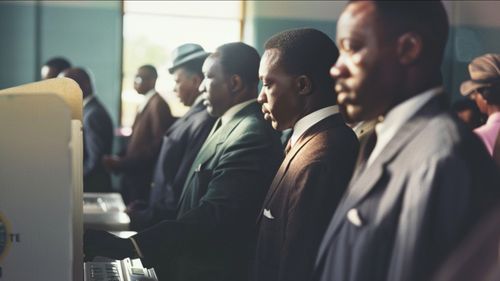The Voting Rights Act of 1965: A Seismic Shift in American Democracy (Summary)
Mar 12, 2024 · 2 mins read
0
Share

The Voting Rights Act of 1965 is a milestone in Civil Rights. Signed into law by President Lyndon Johnson, this act aimed to enforce the 15th Amendment, outlawing discriminatory voting practices and ensuring the right to vote for all citizens, regardless of race or color.
Save
Share
The Act targeted literacy tests, poll taxes, and other bureaucratic restrictions that had been used to deny African Americans the right to vote, risking harassment, intimidation, and even violence.
Save
Share
The murder of voting-rights activists and the attack on peaceful marchers in Selma, Alabama, gained national attention, pushing President Johnson and Congress to initiate meaningful voting rights legislation.
Save
Share
By the end of 1965, a quarter of a million new Black voters had been registered, one-third by federal examiners, marking a significant turning point in the struggle for equal voting rights.
Save
Share
The Voting Rights Act faced immediate challenges in the courts but was upheld by several key Supreme Court decisions, affirming its constitutionality and broad range of protections.
Save
Share
The act has been readopted and strengthened in 1970, 1975, and 1982, continuing to protect the voting rights of minorities and ensuring their political power and representation.
Save
Share
In 2013, the Supreme Court's Shelby County v. Holder decision gutted a key provision of the act, opening the door for a resurgence of voter suppression tactics in some states, like strict voter ID laws.
Save
Share
The fight for voting rights is far from over, with ongoing battles over gerrymandering, voter purges, and access to polling places, reminding us that democracy is a constant struggle.
Save
Share
Bottom line: The Voting Rights Act stands as a testament to the power of grassroots activism and the resilience of the human spirit, a reminder that progress is never permanent, but must be vigilantly defended and expanded for all.
Save
Share
0